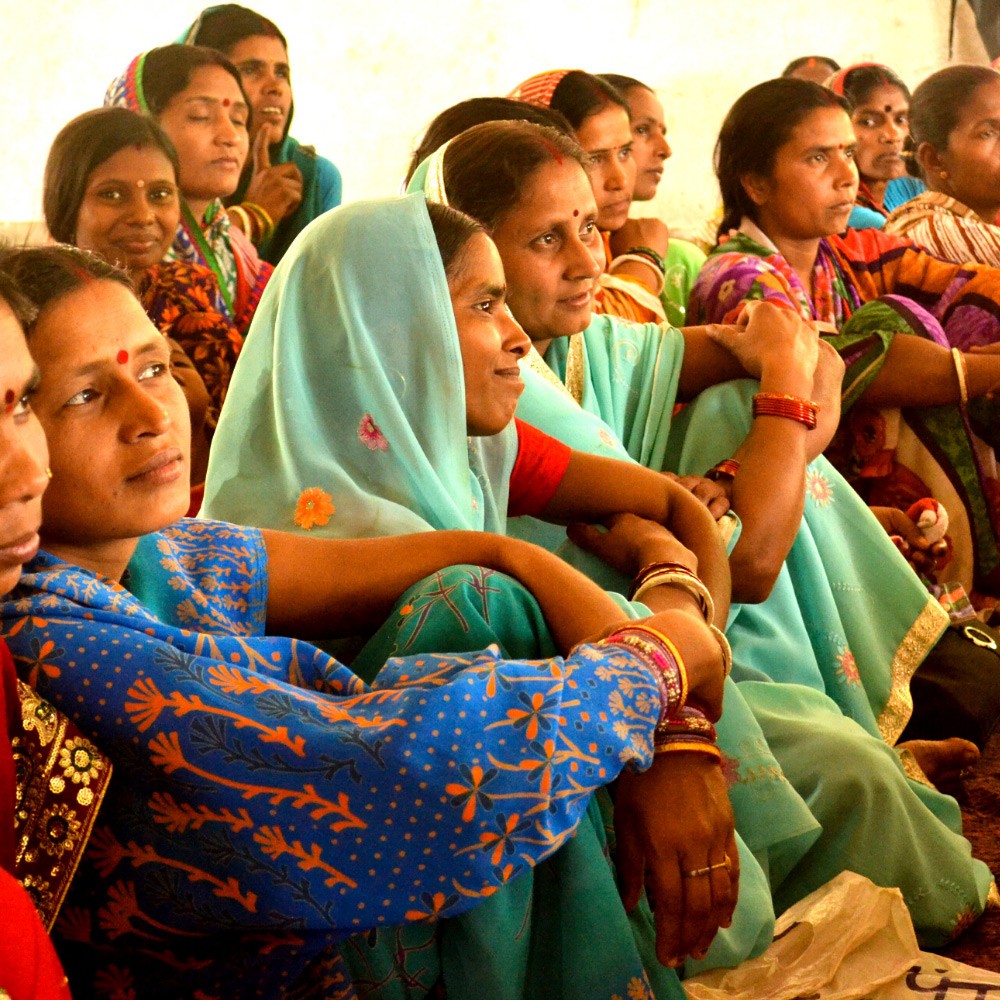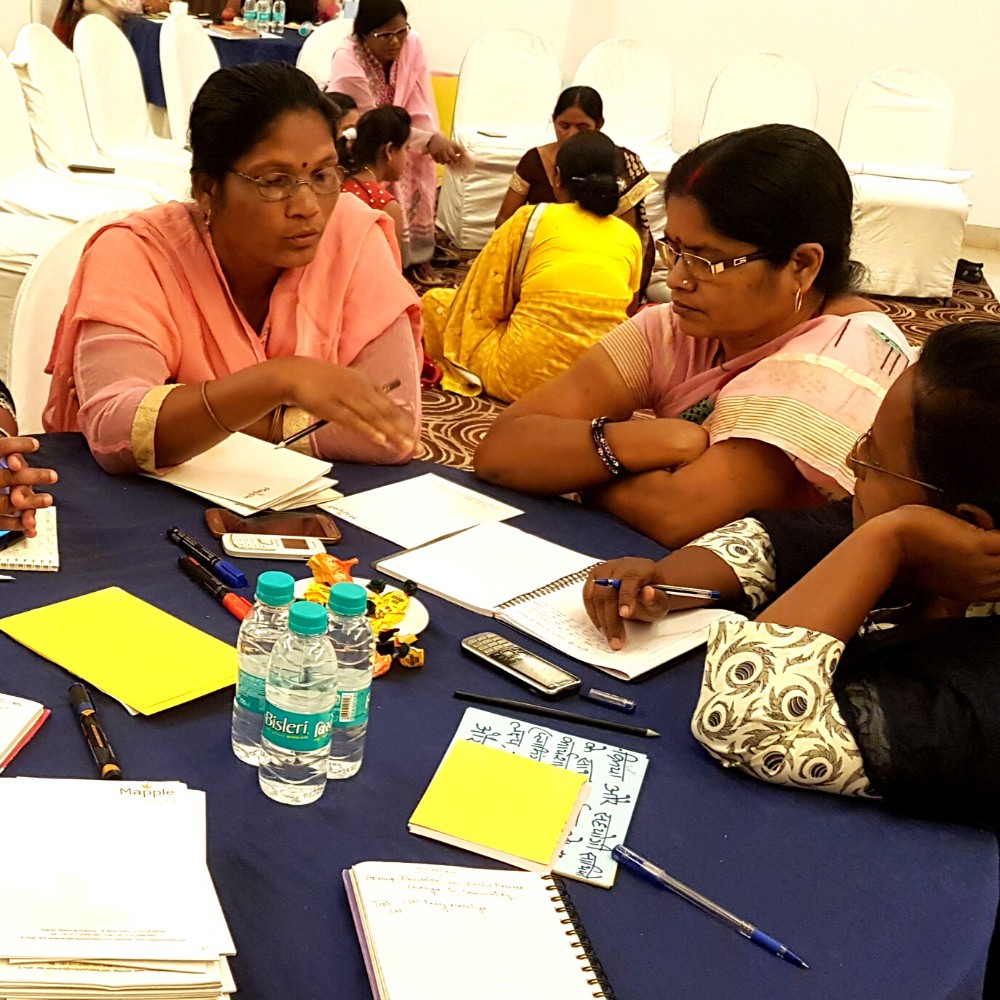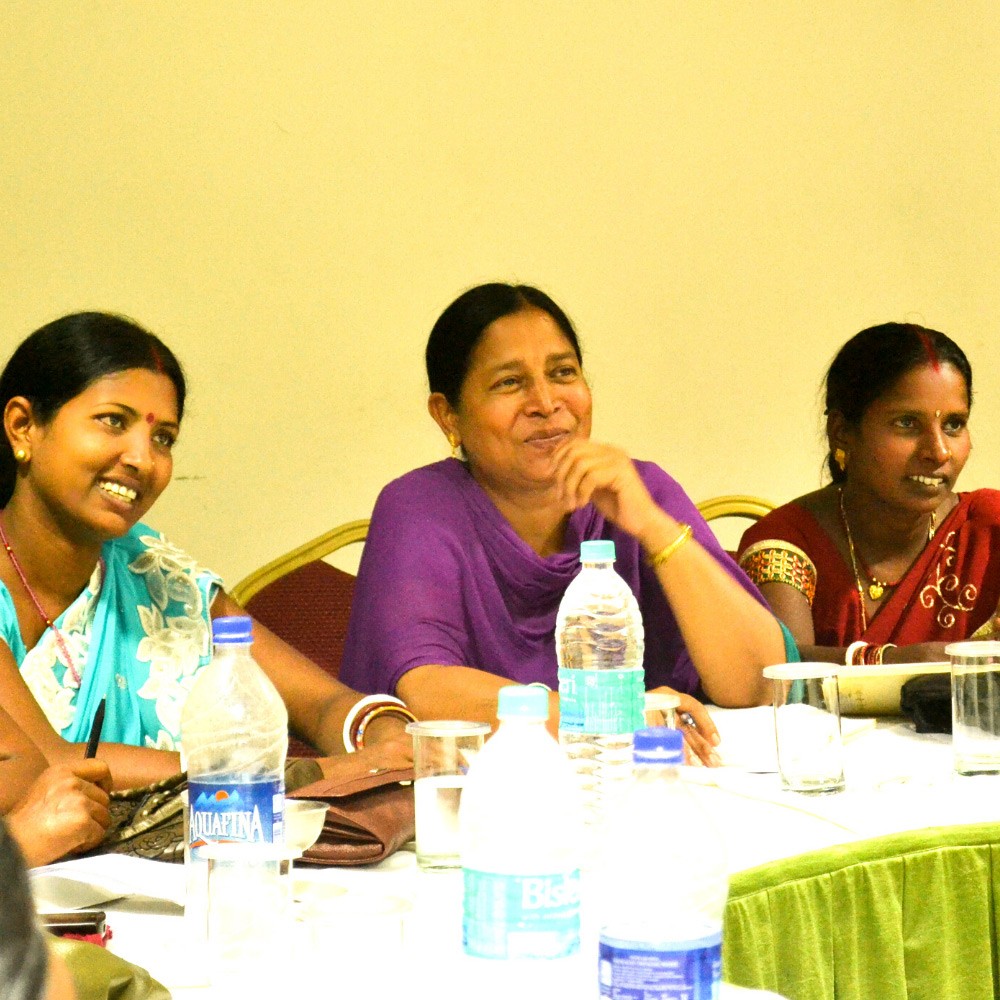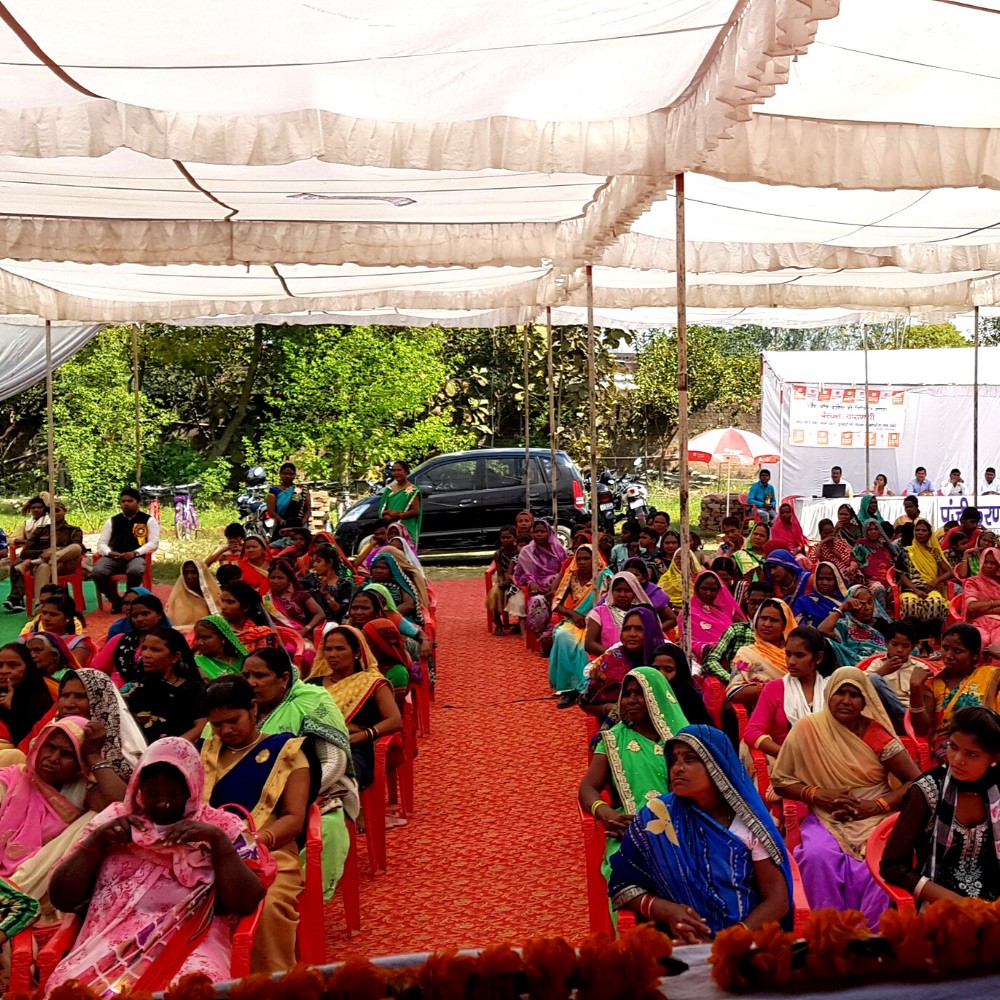Meri Panchayat Meri Shakti
“I am moving from reservation to participation. My husband is not my proxy anymore and I have my own identity now. Though the fight is still on, if I have managed to come this far I will definitely be able to reach my aim of becoming a self-sufficient EWR. CREA and Gramoday Chetna Kendra have supported me in this journey.”
Meri Panchayat | Meri Shakti participant
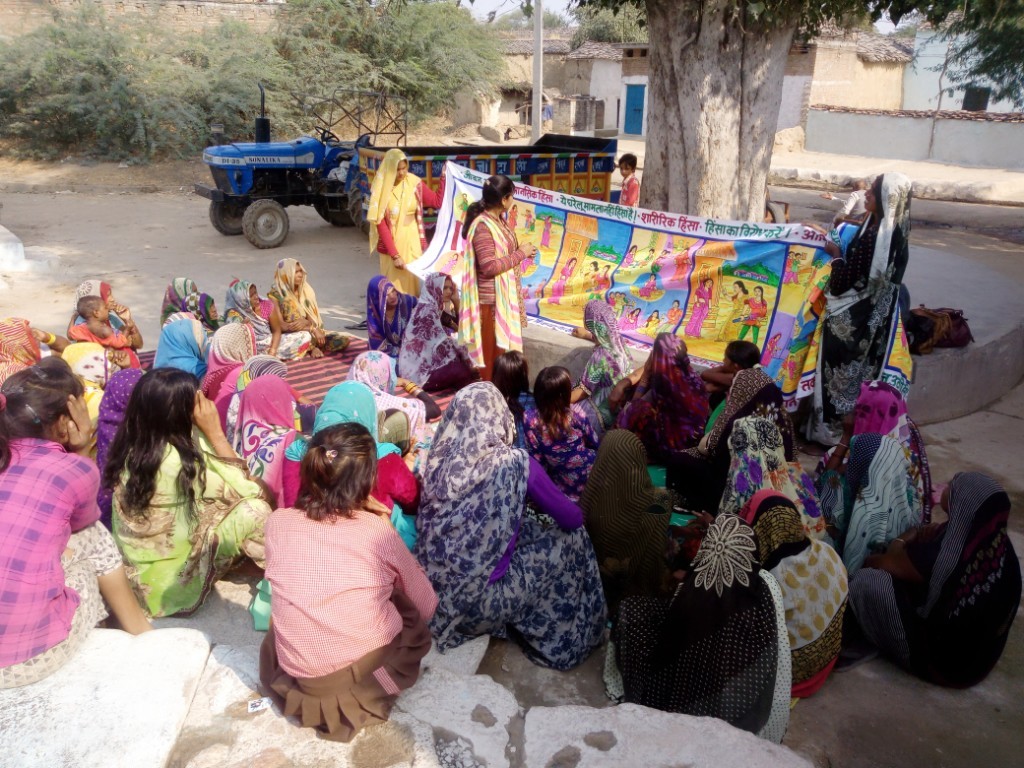
In a country as large and diverse as India, local village councils play a key role in ensuring pressing community issues are appropriately considered and that the basic needs of residents are addressed. By law, 33% of all seats in the local governance systems at the village level (Panchayat) have to be occupied by women. This is an opportunity to raise women’s voices in local governments but, despite being enshrined in law, many elected women representatives are silenced in practice. Elected Women Representatives (EWRs) in local governance bodies face many social and structural challenges in engaging in political spaces. These include inadequate education, lack of financial independence and opposition stemming from entrenched patriarchal views, among others.
In order to support EWRs to fully exercise their rights as women leaders who can themselves build an environment where all women and girls live free of violence, stigma and discrimination, CREA developed a series of trainings under the Meri Panchayat, Meri Shakti (My local governance, My Strength) program to foster feminist leadership at the grassroots level. The strengthened feminist leadership amongst EWRs in turn builds confidence among women leaders to raise their voices around issues of women and girls in both their Panchayat and communities.
The community-based program led by CREA and co-implemented with 12 community-based partner organizations in three Hindi speaking states of Bihar, Jharkhand and Uttar Pradesh. MPMS builds the capacity and knowledge of Elected Women Representatives (EWR), Self-help Groups (SHG) and community-based partner organizations on political systems, gender based discrimination, rights and violence. Since 2015, the MPMS program has built the capacity of 1460 EWRs and SHG members to function effectively as agents of change in local government institutions and at the community level. These feminist leaders have been able to move beyond tokenistic participation in local governance that is mandated through reservation and have created an environment that upholds the principles of feminist leadership, decision-making and effective local governance. The impact study of the program provides evidence on attributes of greater leadership and agency of EWRs, so that they not only have the information to participate in local governance, but also the skills and confidence to negotiate at an individual, societal and systemic level along with an ability to establish themselves as feminist leaders for the community.
